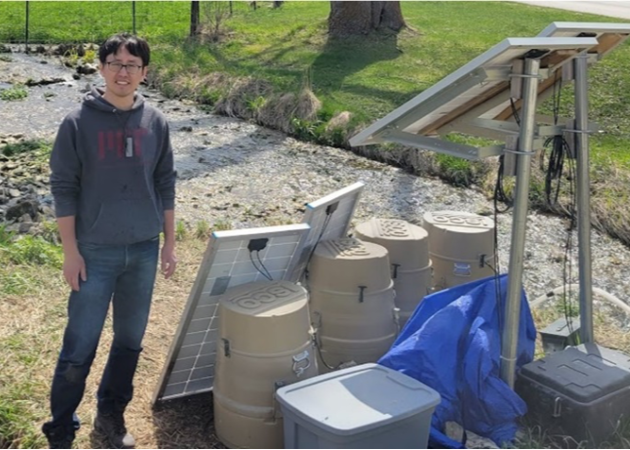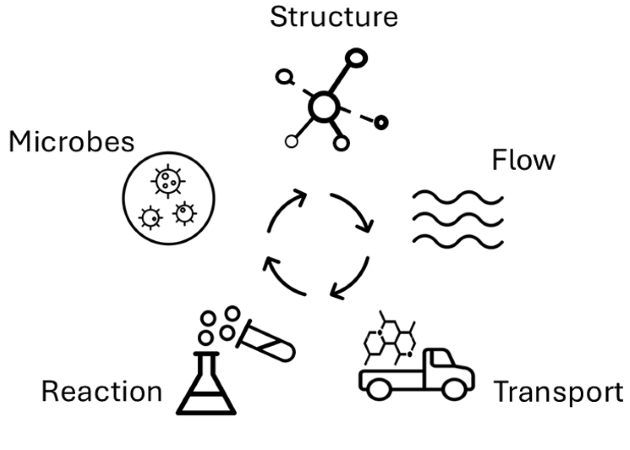
Sean Yoon , a physical hydrologist, investigates how groundwater flows through the subsurface and transports dissolved substances, impacting everything from ecosystems to human society. These flow and transport processes govern the quantity and quality of water resources, regulate nutrient cycling that impacts ecosystems, and influence the fate of contaminants. A deeper understanding of these processes is essential for addressing pressing environmental challenges such as water scarcity, pollution, and climate change.
Sean’s research is particularly focused on karst aquifers, which are complex hydrological systems characterized by three distinct and interconnected porosity systems, including conduits, fractures, and intergranular pores. Variations in flow and transport through these triple porosity systems present unique challenges due to their heterogeneity and nonlinear behavior. By studying these systems, Sean aims to develop new models and methods for predicting water flow and contaminant transport in karst environments.
Sean’s approach to this complex system requires interdisciplinary collaborations. Since arriving at UF he has developed and leads a team of biological and geochemical investigators that complements his hydrologic expertise. His interdisciplinary team is thus able to address questions of the complex interactions between water flow, microbial processes, and geochemical reactions (Fig. 2). As an example, a current project uses unique micro-flow-through cells in which laboratory experiments can investigate the microbial mechanisms recently found to produce nitrous oxide, a potent greenhouse gas, in karst aquifers.
Florida’s diverse water systems—including karst aquifers, streams, rivers, lakes, marshes, and coastal areas—provide an ideal setting for Sean’s research. While his current focus is on karst aquifers, over time he plans to expand his studies to include other hydrological systems in Florida. Through collaborations with local stakeholders, Sean will contribute to policies and practices related to water quality, ecosystem conservation, and climate change adaptation within Florida, but also across the nation and the world.

